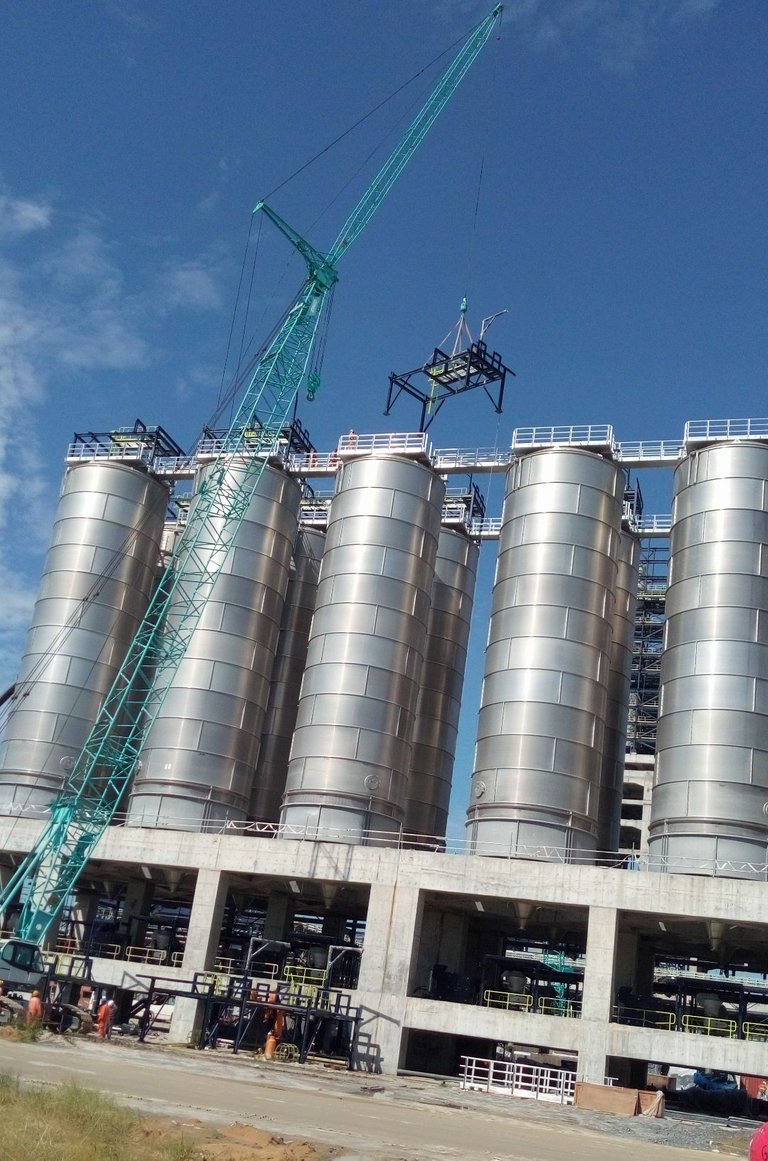
The Dangote refinery, one of the largest in the world, currently employs a workforce of over 11,000 individuals, a majority of whom are of Indian nationality. While this undoubtedly provides opportunities for foreign workers, it has also sparked concerns about the impact on Nigeria's employment situation, particularly the high level of unemployment among its youth population.
The Sub-Saharan African Skills and Apprenticeship Stakeholders Network, represented by its Secretary-General, Ousman Sillahur, has pointed out that one of the primary issues contributing to the unemployment problem is the lack of essential skills among Nigerian youths. According to their assessment, many young job seekers possess impressive academic qualifications on paper, but they lack the practical know-how required to fit into the industry.
This is a blatant lie, speaking as someone with a first hand experience, having worked in the refinery for over 4 years!

Most foreigners especially indians (no disrespect please) who are brought into the country know absolutely nothing and have to be trained from scratch on high value skills such as welding, fitting, maintenance, structural, e.t.c and guess who trains them... You guessed right, Nigerian casual workers who are payed peanuts! Remarkably, many of these foreign workers eventually climb the ladder of hierarchy to become team leads, supervisors or managers, overseeing those who originally trained them.
This is not to dismiss the fact that there is still a shortage of skilled workers in Nigeria, but there's absolutely no reason why the teeming unemployed youths who are willing and ready to work can't be trained.
Also it is a pointer to the underlying rot in our educational curriculum which prioritizes worthless degrees and certificates over much needed skills. Encouraging partnerships between educational institutions, government agencies, and private companies can create apprenticeship opportunities and vocational training programs that equip young individuals with the necessary skills to thrive in various industries.
The Underlying Fallout
The consequences of not addressing the issue of unemployment are far-reaching and extend beyond the borders of Nigeria. For many Nigerians, the dream of escaping the situation here and finding better opportunities abroad leads them to take the perilous journey to Europe through Libya.

Source
The harsh reality is that most of these irregular migrants do not reach their intended destinations and often face dire circumstances, including kidnapping, detention, and deportation. Moreover, those who make it to Europe usually lack the legal right to stay and are eventually sent back to Nigeria, exacerbating their economic hardships.
The current unemployment rate in Nigeria stands alarmingly high, reaching as high as 33 percent and projected to escalate further to 41 percent, according to a recent report by KPMG - a direct result of decisions such as the one made by companies like Dangote. This is a major issue in a country where more than half of the population of over 200 million is under 35-years of age.
For those fortunate enough to secure jobs within Nigeria, the reality can be harsh. Many are forced to work extended hours for meager wages, often earning as little as 30,000 Nigerian Naira per month (approximately USD 38), working up to 12hours and above per day, spending the equivalent of up to 80% of their income on transportation and feeding, not to mention accomodation, which leaves little to nothing for personal development and savings.
The election which was concluded earlier this year 2023 revealed just how tired a lot of the populace are about the state of the nation with Mr. Peter Obi of the Labor Party amassing a record number of votes from across the Nation, despite having being touted as not having the right structure to win in such a hostile political landscape such as Nigeria"
The many other consequences of unemployment such as insecurity, corruption, terrorism, all join to form a vicious cycle of never ending suffering and poverty for the people (which btw I believe is intentional by a group of elites who see it as a tool for controlling the masses and staying in power).
Is there an end to the madness?
Maybe...but I believe the better question should be: are Nigerians ready to do what it takes to break the vicious cycle?
In the meantime, addressing the unemployment crisis in Nigeria requires a multi-faceted approach and not business as usual. Companies like Dangote, while contributing to economic growth, must also prioritize investing in the development of local talents and providing job opportunities to the country's youth. Simultaneously, the government should focus on formulating policies that encourage skills-based education, vocational training, and entrepreneurship to empower its youth and enable them to contribute to the nation's progress. The problems plaguing the country are too many and too exhausting to even think about, but let the private citizens and corporations who have the means to make a significant difference not add to these already existing challenges by overlooking her own citizens when employing. Let's discuss in the comment section, what else can Nigerians do to improve their situation?
References:
https://businessday.ng/news/article/dangote-refinery-why-nigerians-were-ignored-11000-indian-workers-hired/
https://nigeria.iom.int/news/iom-nigeria-bi-monthly-situation-report-march-april-2023

Cool Hive divider by @thepeakstudio
Thanks for reading, if you found my post interesting, then remember to hit the follow button so you don’t miss out on future posts. I look forward to your contributions in the comment section.
My name is Edwin Ifeanyi Louis (eil7304) and I love to write about finance and investing, movies, technology, gaming, and fiction on a Blockchain platform called Hive.
Contacts

Cool Hive animation by @thepeakstudio
The rate of unemployment is on the increase daily, these days you need to know people to get a job.